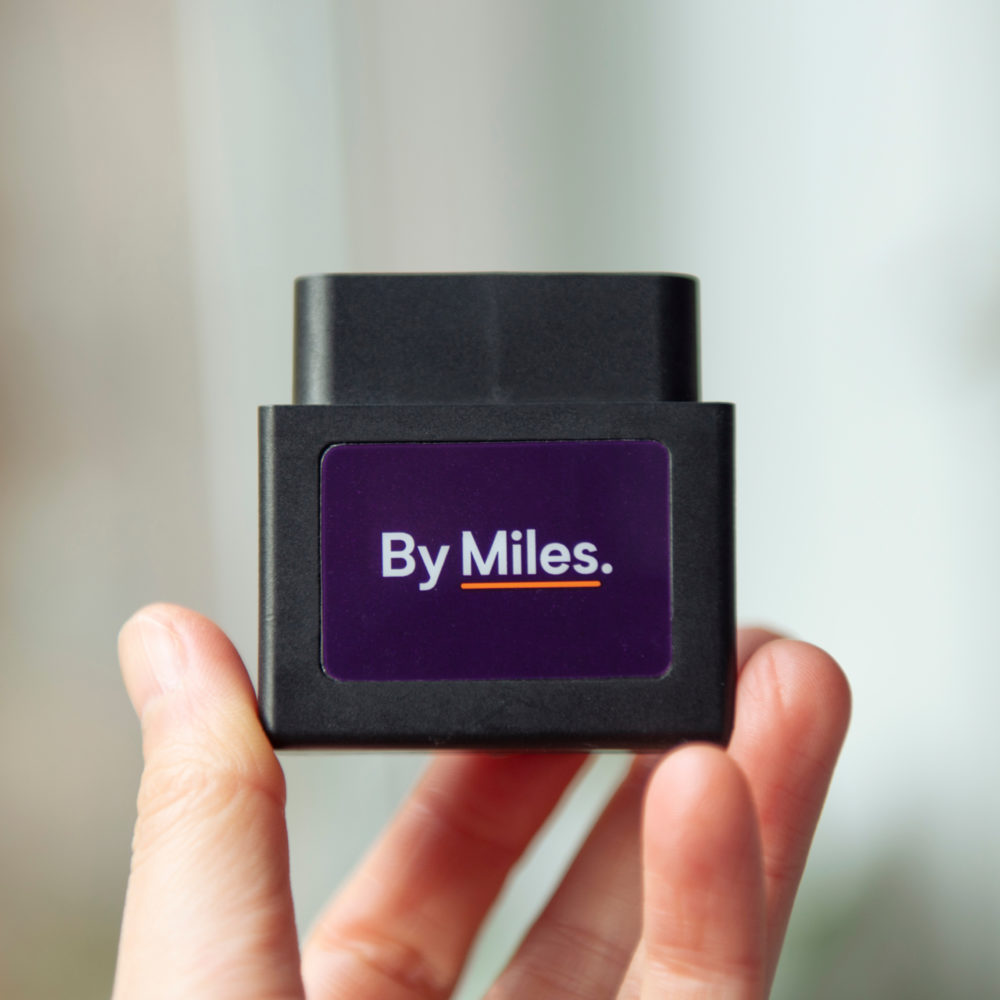This is it. The big question. And it deserves a big answer. So in this blog we’ll share everything we know about getting cheap car insurance. (Given that we’ve won Best Car Insurance Provider three years in a row, that’s quite a lot).
Contents.
- The main ways to get cheap car insurance.
- How does your car affect your car insurance quote?
- How does your personal information affect your car insurance quote?
- Misconceptions about getting cheap car insurance.
- Saving with telematics car insurance.
- More ways to get cheap car insurance.
- Other costs to think about.
- Switching.
- Mistakes to avoid when looking for affordable car insurance.
- Checking your car insurance is good quality.
- Keeping your price down long term.
- Why is car insurance so expensive?
What are the main ways to get cheap car insurance?
Shop early to get a better price.
To put it simply, people who buy early tend to be a bit more organised and rush around less. That means they tend to be a lower risk for insurers and can get cheaper car insurance. Makes sense, right?
The best time to buy a policy varies depending on the insurer. But buying 20-30 days before you need your policy to start should help you get a cheaper quote. Leaving it to the last minute will generally work against you.
Keep the car insurance quotes you’ve been emailed.
It can feel like spam when you’ve got an inbox full of quotes from insurers and comparison sites. But some of those quotes from last week will actually be cheaper and could still be valid. Hang onto them.
Prices tend to increase as you get closer to your start date. Provided your start date is still in the future, many insurers (By Miles included) will let you buy those quotes up to 30 days later.
Just keep in mind that if you go into an old quote and update a single detail then that will create a new quote. That could mean the price changes.
Comparison sites are designed for cheaper for car insurance.
Even with recent rules changes, it’s worth shopping around at renewal time. The beauty of comparison sites is that they’ll do a lot of the hard work for you. Sites like MoneySuperMarket, GoCompare, comparethemarket and Confused.com will sift through quotes from over 100 potential policies to help you find the best price.
Of course, even though you’re looking for cheap car insurance don’t forget to factor in quality. Sometimes less is less, and a cheaper policy may be cheaper becomes it offers less protection or comes with lower levels of service.
Multi-car insurance.
Multi-car insurance can be a good way to save money for some. It typically works by knocking 5% off the price of insurance for all the cars on the policy, or by taking 5-10% off the cheapest car. If you’ve got a couple of cars in the driveway, it’s worth taking a look to see if this type of insurance could work out cheaper for you.
The theory behind the saving is pretty simple. If you’ve got several cars, logically, you’ll be driving some of them less than others (as you can’t drive them all at once – unless you’ve worked out how to clone yourself). Less time on the road means you’re at a lower risk of making a claim. That means multi-car insurers can afford to offer you a slightly lower price.
This isn’t something we offer at By Miles, because our pay-as-you-drive policy offers you the same benefit (as you can’t drive two cars at the same time). But we’ve got more on that below…
Multi-car insurance alternative.
As above, the reason you can make a saving with multi-car insurance is because the more cars you have, the less mileage they’re likely to do.
At By Miles, we’d suggest you might want to try getting a pay-per-mile quote for each car if the mileage on each one isn’t adding up to much. We may be biased, but we think it’s a fairer alternative to traditional policies if you’re not clocking up many miles.
Pay-per-mile is often cheaper for cars that do under 7,000 miles a year (which according to new data is more people than ever), so you could potentially save more than the typical 5-10% by having one car on a pay-per-mile policy, and finding your higher mileage car with a suitable policy with a more traditional insurer.

Mileage can now make a bigger difference to your price.
Mileage is an interesting one, because insurers tend to be quite divided on its impact when it comes to pricing. Some think that low mileage drivers are less experienced on the roads, and should be charged more as a result (we did some research on this in collaboration with MoneySuperMarket a little while back, and you might be shocked to see the results).
On the other hand, an alternative like pay-by-mile insurance is designed to offer lower prices for cars that drive under 7,000 miles a year. This works as the assumption is that lower mileage cars spend less time on the roads and are less risky for insurers. After all, when you’re not driving, you’re far less likely to have an accident.
The important thing to remember when you’re looking for cheaper car insurance is to enter a realistic mileage estimate for the year ahead, rather than over-estimating, as that should help you to get the best price.
There are a number of free tools that can help you to be as accurate as possible. For example, getting a quick quote from By Miles will automatically check the last two MOTs your car has had, and provide you with its annual mileage based on those results.
Increasing your voluntary excess can help you save. But it comes at a price.
UK insurers will often have a ‘compulsory excess’ and so any ‘voluntary excess’ you add will be on top of compulsory excess and can end up being quite costly.
A higher voluntary excess may knock some money off your quote, but make sure that you’re prepared to pay that amount if you end up making a claim.
An excess is sort of a bet you’re making on yourself being a good driver. The higher the excess you need to pay in the instance of a claim, the lower your overall insurance cost. So you’d better be pretty confident you’re not going to have an accident!
It’s always worth remembering that no matter how good you think you are as a driver, it’s the other not-so-good drivers on the road you need to consider. If you set your excess so high that you can’t afford to claim, that’s pretty much the same as not having insurance at all (aside from the fact it isn’t illegal). Remember: a policy you can’t actually use is bad value no matter how little it costs.
How does your car affect your car insurance price?
It’s not just your car, but how long you’ve had it, that makes a difference. So if you’re thinking of buying a new or used car, it pays to think about how much it will cost in running costs once you have it.
Assuming you don’t have to fork out loads for maintenance or repairs, your car insurance will be a big part of that cost each year (along with fuel). We did some analysis into the average cost of car ownership by mile for different areas in the UK. Unsurprisingly, London came out the most expensive.
Here are a few things it’s worth knowing can affect the price of your insurance when searching for your next car:
- Power: consider whether you need a high-powered car if you’re doing 20-30mph most of the time. Lower-powered cars are often cheaper to insure (as well as being cheaper to run and better for the environment).
- Car value: these days, most insurers and comparison sites will automatically estimate the price of your car for you. If you think your motor’s been inaccurately valued, avoid the temptation to massively overvalue or undervalue it. Bear in mind that insurers will tend to look at the market value of replacing it rather than the price you paid. Top tip: a quick check on AutoTrader for a similar car normally gives you a realistic market price.
- Familiarity counts: so you may want to reconsider selling your car if you’re thinking about getting rid of it. The logic is pretty simple – if you’ve had your car for a long time, looked after it and know how it drives, then you are a lower risk driver.
- Buying an old banger might not help you – though it might save you money on the purchase, because you’re less familiar with it, it can also increase your insurance costs.

How does your personal information affect your car insurance quote?
Being on the Electoral Roll can lower the cost of your car insurance.
A lot of car insurance quotes take something called an ‘ID score’ into account when they give you a quote, and a high ID score can actually lower your insurance. So while being on the electoral roll allows you to vote, it can also have a rather pleasant impact on your car insurance. We call that a win-win.
An ID score is calculated when insurers attempt to verify your identity by using data from third parties (basically to prove you are who you say you are) so they can stop people buying fraudulent policies with fake information. In order to do this, they might check things like information from the electoral roll, as well as bank account information.
Provide accurate details to get a better price.
Avoid using random details when you search for cheap car insurance. As we explained above, your insurer might not be able to complete your ID check if they can’t figure out that you’re a real person. The knock-on effect is that you’ll be left with a worse price on a quote that you won’t even buy. (Unless your name really is Mr Mickey Mouse, in which case, our condolences.)
To put it simply, if you use your correct details, you’ll get an accurate price.
It pays to be honest. Even if you don’t buy straight away, insurers like By Miles will let you buy the old quote you got, as long as you don’t change any details and the start date is still in the future. Given that prices tend to get more expensive as you get closer to your start date getting back in to secure that old (and accurate) quote can help you save. You can’t do that if you gave a made up name or other fake details.
What are the common misconceptions about car insurance prices?
Adding another driver won’t always help you save on your car insurance.
A lot of ‘cheap car insurance tips’ will tell you to add an additional driver. Unfortunately, life is a bit more complex than that.
Insurance quotes will increase or decrease depending on each driver’s driving history, among other factors. If you do add drivers to your policy – make sure to double check the details of any accidents, speeding tickets etc. they’ve had during the last 5 years. If you don’t add those details, it could easily invalidate your whole policy.
Sometimes, it may work out cheaper for additional drivers to get temporary cover if and when they need to use the car, especially if it’s not going to be a regular thing. Every circumstance is different, so there’s no hard and fast rule when it comes to adding another driver.
The cheapest occupation when getting car insurance.
Sorry to rain on your parade, but there’s no magic answer to this one. The cheapest occupation is whatever your job is.
It’s fair to try accurate variations on your job title e.g. “personal assistant” or “secretary” if they both accurately describe your job, but don’t say that you’re a baker if you’re a scaffolder. You’re likely to get caught out (and end up with a very confusing CV).
Remember, if you tell a lie when you buy car insurance to make it cheaper, it may invalidate your policy and leave you with a big bill if you need to make a claim – as you’ve essentially given fraudulent information. Trying to save a few quid upfront can end up costing you massively down the line, so avoid temptation, no matter how sweet it may be.
Saving with black box car insurance.
‘Black box’ insurance is a term commonly used to describe insurance that uses data from a vehicle to more accurately calculate risk and more fairly price an insurance policy. This type of data is often referred to as ‘telematics’. But black box car insurance has come a long way and many modern policies are a lot more user-friendly than you might think.
Telematics policies used to rely on devices that were literally black boxes. An engineer would come and fit a black box under your bonnet, or wire it in under your dashboard, and information about your driving would be fed back to your insurer. These days there are a whole range of other options that you can quickly plug in yourself (and they’re not always black). In fact, in the case of some connected cars, you don’t need a device at all.
Drivers can often (understandably) be a bit spooked by the idea of their insurance company having information about how they’re driving – especially if they think that their insurance premium will go up if they speed, or if that information might be shared with the police. However, it’s worth noting that not all black box policies use speed or driving style to charge you – and most insurance companies wouldn’t report information about your driving to the police without a court order (at By Miles, we’ve never had one of those).
Besides, being tracked doesn’t always need to be scary – the smartphone in your pocket has been doing it for years to give you access to instant maps and directions. It’s about whether you mind sharing certain information with a company in order to make a saving or unlock other benefits.
What are the different types of telematics insurance?
Below is a run-down of the different types of black box car insurance available, what they track, and how they use that information to offer you savings on your car insurance.
- Pay-how-you-drive insurance
Young driver insurance can be eye-wateringly expensive. One way young drivers can save is by choosing a pay-how-you-drive policy where your driving is monitored. This option can make your car insurance cheaper the more safely you show you can drive. Of course, if your driving is seen to be more risky, then your price will go up.
- Pay-how-you-drive with a night time curfew
Adding a curfew and accepting you won’t drive at certain times of day can also lower your insurance costs.
The curfew times are common sense really – you’ll generally be expected to avoid times when the road is especially busy (like during rush hour) or when it’s especially late or dark, as visibility can be low and there may be other drivers on the road at that time who tend to drive a bit more dangerously. Of course, the downside of not being able to drive during the set hours is pretty clear, so it all depends whether you’re willing to inconvenience yourself to bring your costs down.
- Pay-as-you-go car insurance
There are various types of pay-as-you-go e.g. pay-by-miles (see below) and pay-by-time. You can read more about the differences between these two types of insurance here.
With pay-by-time you’ll be charged according to how long you’re driving for. This can be particularly cost effective with temporary car insurance – for example, when you need to borrow a friend’s car for a few hours.
- Pay-by-mile insurance: Drive less, pay less.
There are a number of mileage based car insurance products but here we’ll cover how you could save with By Miles.
- The policy is designed for those who drive less than 7,000 miles a year. If that’s you – you can get a quick quote below in just 4 questions. If you drive more than 7,000 miles a year then you may find cheaper insurance elsewhere.
- There’s no penalty for driving more or less than your estimated miles. Drive a bit more and you’ll pay a bit more. Drive less and you’ll pay less.
- There are no admin fees for your first three policy changes per year.
- This is a pay-by-mile (not pay-how-you-drive) policy, so there’s no driver scoring. If you break or accelerate a bit too hard then your price won’t change.
- Mileage cost caps limit your spending without limiting your freedom. With this automatic safety net, you can drive as much as you like – we cap the maximum you can be charged at 150 miles per day and 10,000 miles per year. So while your costs might be capped – you’ll still be fully covered.

More ways to save on your car insurance.
Is it cheaper to pay for car insurance monthly or annually?
There’s no hard and fast rule when it comes to paying on a monthly basis or in one annual lump sum.
Having said that, monthly payments for the same insurance often come with a hefty interest rate charge that can add 15-25% to the price, so paying the annual option of paying the whole cost upfront would generally work out cheaper.
A relatively new alternative that can help with your money management is a By Miles policy which can offer the best of both worlds:
- You pay an upfront fee that covers your car whenever it’s parked, and after that, you only pay for the miles you actually drive.
- Because By Miles only charges for the miles you’ve driven at the end of each month, that helps to spread the payments over the course of the year.
- Importantly, even though some of the payments are monthly, there is no interest rate charge.
- If you prefer you can pay everything upfront and then get a refund for any miles you’ve paid for but not used at the end of the policy.
By Miles also offers a ‘spread the cost’ payment option for those who find the upfront fee a bit daunting. The ‘spread the cost’ payment option lets you spread some of the upfront fee over 12 months, so it becomes even more manageable. Bear in mind though, this option can increase the total cost for the year.
Look after your No Claims Discount.
Your No Claims Discount can help lower the cost of your insurance. The difference between having one or three years of No Claims is much bigger than having seven or nine years. In fact the benefit is pretty limited after 9-10 years. So having 10 years or 20 years of No Claims won’t make much difference price wise.
Consider using protection.
Some insurers will charge around £25 for “No Claims Discount protection” – with By Miles it’s included as standard.
No Claims Discount protection is useful because it means you won’t lose your No Claims Discount even if you have to make a claim. It’s worth knowing that protecting your No Claims doesn’t mean your price won’t ever change. – Eeven though your No Claims Discount years will stay intact in the event of a claim, your premiums ice may still change at renewal time.
Should I haggle with my car insurance provider?
Since January 2022, the Financial Conduct Authority has clamped down on this practice in a bid to encourage insurers to offer their best price from the outset. It’s a move that’s aimed at getting drivers a fairer deal, so we welcomed it.
At By Miles, we’ll always give you our best price, so there’s no need to haggle. We’ll make sure you’re getting the best deal possible and never charge you more on renewal than it would cost you to join us as a brand new customer.
Does my car parking spot make car insurance cheaper?
Common sense applies here. A safer car parking space (like a garage or driveway) is better than on the road, but that’s not always possible for every driver.
The important thing is to provide your insurer with truthful information. Pretending that you park your car in a garage when it’s actually roadside could impact your claim if you need to make one down the line. Always tell the truth.
What other costs should I take into account?
Insurance admin fees can really add up.
Many insurers charge customers an admin fee for changing details like a new address, new car, new job, changing an additional driver and more. It can cost anything from £25-£60, so always check the (sometimes hidden) admin fees before you buy.
Despite the fee, it’s important to let your insurer know if you’re going to change any details like your home address or car, otherwise it could invalidate your policy.
With a By Miles policy, you can make three policy changes a year without an admin fee, but bear in mind that with any insurer, the change may affect the overall price of your insurance. For example, if you get a more expensive car or add a riskier driver, then you should expect to see a price increase.
You can often be charged cancellation fees before or after 14 days.
Every insurer is different, so be sure to check before you buy a policy. Many charge a cancellation fee regardless of whether you cancel before or after the first 14 days.
Does it make sense to switch car insurance?
It can, and it’s strange that people don’t do this. It might be a small bit of admin, but it really pays off.
Trustpilot is full of reviews from people who’re thrilled because they’ve saved £100s when they shopped around at renewal time. You too could be one of those lucky folks.
You don’t have to wait until the end of your policy to change insurer. If you’re six months into your policy and find a price that’s £100s cheaper and it only costs £50 to cancel, then you can make a quick saving.
Before you switch, make sure to check that your current insurer offers a pro-rata refund. For example, if you cancel six months in with a pro-rata refund, you’d get 50% of your money back, minus the cancellation fee.
At By Miles, we offer a simple pro-rata refund on the upfront fee, and naturally, we won’t charge you for any future miles you haven’t driven after all, we’re not psychics).
A word of warning.
Switching doesn’t always make sense for everyone.You won’t earn a year of no-claims bonus if you switch. So if you only have a few years of No Claims built up, you might be better off earning that extra year to help keep future prices down.
However, once you’ve got over eight or nine years of No Claims, adding another year will have little impact on next year’s insurance – it’s much of a muchness once you reach the eight year mark. In this situation, switching can make more sense, as long as you’re able to get a pro-rata refund.

What are the big mistakes when trying to find affordable car insurance?
Not giving your insurer the correct information.
Number one is simple. The biggest mistake is not giving your insurer accurate information when you get a quote.
It doesn’t help to lie on your insurance application. Being untruthful about things like your occupation and No Claims Discount is never a good idea.
- In the event of a claim, insurers will often check to see if the information you’ve provided was accurate. Giving inaccurate information can invalidate your insurance policy and leave you with a big bill if you need to make a claim.
- If your insurer does a spot check and you’ve told them a lie, they can cancel your insurance policy, which can have a knock-on effect of making future quotes more expensive.
Having your car insurance cancelled by an insurance company is different to deciding not to renew your insurance with them. Deciding not to renew is absolutely fine. By all means, look around for a policy that suits you – it’s not a crime!
Not telling your insurer when your details change.
Similar to above, another expensive mistake is failing to let your insurer know that your details have changed. That could be information about your job, address, car, number of speeding tickets or something else.
Again, when you need to make a claim, your insurer will often do a check to make sure the information you provided was accurate. Not keeping your policy information up-to-date could invalidate your insurance and leave you with a costly bill.
It’s worth checking if your insurer will let you update your details online (potentially with lower admin fees, or none at all). With By Miles, you can easily update your policy yourself using the website or app, and the first three changes per year won’t cost you an admin fee (although the changes can affect the cost of your premium).
Buying a new policy you might not use.
As above, insurers will often charge a £30 – £50 cancellation fee irrespective of whether you cancel before or after the first 14 days of the policy.
Don’t fall into the trap of buying a new policy at renewal time, then trying to haggle with your old insurer. If you do manage to get your existing insurer to quote a decent price, you could be hit with a £50 cancellation fee for leaving. Do the haggling before you commit to anything.
Buying a car without checking how much your insurance might change or if your current insurer will even cover it.
Some cars, like Range Rovers, are such beautiful pieces of machinery that they’re very popular with thieves. As a result, insurance prices can skyrocket. If you’re thinking of buying a new car, be sure to get a quick insurance quote before you take the plunge. An unexpected car insurance price hike isn’t the best way to celebrate getting a new car – trust us.
Similarly, at By Miles, we might cover your current car, but perhaps not the one you intend to buy. If you’d like to stay with us and get your new car on our policy, be sure to run a quote first. If you get a price, we can cover the car. And if we can’t, we’ll tell you why.
Trying to save with Third Party car insurance.
Third Party insurance is often a false economy. While price is important, it’s a good idea to make sure that you’re getting good quality cover from your car insurance. When you’re trying to find cheap car insurance, don’t just look for Third Party options. Besides, believe it or not, it isn’t always the cheapest option.
Third Party doesn’t cover your car if:
- you cause the accident
- another party caused the accident, but it can’t be proven that they were ‘at fault’ (this may end up being classed as ‘Split Liability’ where you share the fault, or worse, could end up being blamed on you if there’s not enough evidence)
- your car is hit while it’s parked and no one admits responsibility
With Third Party Only, your car isn’t covered for fire (rare) or theft (not so rare). In the end, you can get left with a hefty bill if you still need a car.
At By Miles, we don’t think either Third Party or Third Party Fire and Theft offer fair value to motorists. So we don’t sell those types of cover. Instead, we offer comprehensive cover as standard.

How can you check for good quality car insurance?
Quality matters – particularly with insurance. It’s not all about buying the cheapest car insurance.
Some motor insurance policies have better quality cover and there are many levels of service, from first class to seemingly non-existent.
When you find a price you like, don’t forget to check the quality of what you’re about to spend your hard-earned money on.
A couple of ways to check for better quality car insurance:
- Defaqato gives scores of 1 – 5 stars based on ‘expert ratings’. It’s pretty simple, as 4 and 5 offer the highest quality products with the most features. If your policy doesn’t score well, be sure to check that it still works for you.
- Trustpilot gives user ratings out of 5, where 1 is ‘bad’ and 5 is ‘excellent’. Apart from the overall score, if you look at the written reviews, you’ll usually get an idea of what the typical annoyances are. For example, long waits on the phone, problems with claiming or poor customer service.
Personalised must-haves:
Few of us have the time to compare every single feature, but here’s a useful list of ‘must-haves’:
- Courtesy car
- No Claims Discount protection
- Cover while driving in the EU
How can we keep the long-term price down?
Making a claim vs. saving next year (and the year after).
It may sound obvious, but not making a claim is one of the best ways to make sure your insurance price stays low, year after year.
Making a claim will not only cost you your excess and prevent you from earning another year of No Claims Discount, but there are also bigger knock-on effects down the line. Even if you protect your No Claims Discount, it doesn’t mean your policy price won’t increase if you make a claim. (It may just increase by a little less than if your NCD wasn’t protected).
Things like dashcams, taking an advanced driving course, buying extra locks, parking somewhere safe, taking extra care of your keyless keys, etc. won’t make much, or any, difference to your current price.
But things like being able to prove the other driver was at fault, avoiding an accident with better driving skills and not having your car stolen means you are less likely to have to make a claim.
These things can help with next year’s price and often the year after that and the year after that. So if you want to save in the future, it can be worth investing a little.
Wheel locks can help in the long-term.
A ‘Thatcham Approved’ lock can wheely help with some insurers (sorry, couldn’t help it). They might seem a bit old fashioned, but keyless cars are now making some thefts a little easier.
Whatever car you have, a good lock might not always reduce your insurance quote. But it can reduce the risk of theft, and therefore reduce the risk of you making a claim. Take a look at some good wheel lock options, here.

Dashcams.
Dashcams are becoming more important as time goes on. At the moment, they are unlikely to do much to your initial quote price, but we still recommend them.
Dashcam footage can be great at showing who’s at fault in an accident and can help avoid those “he said, she said” situations. If the dashcam proves an accident was the other person’s fault, that can help with your No Claims Discount. It can also help to speed up the claims process.
Why is car insurance so expensive?
That’s the multi-million dollar question.
In short:
- 60-70% of car insurance premiums gets paid out on claims.
- 5% goes on fraud. It’s not just the cost of the actual fraud. A lot of money is spent on countering fraud too. If everyone told the truth, things would be a lot cheaper for everyone.
- 5% will go out on the huge, catastrophic claims. While they’re infrequent, the multi-million pound settlements can have a huge impact on an insurer’s costs. These expenses do tend to get passed onto motorists as they reflect the risks on the road.
- There are a lot of industry “inefficiencies” too. For example, inflated hire car charges and some third party repairs.
- Comparison sites get paid £50 – £80 for every person they refer. So it’s not cheap for insurers to get the customers in the first place!
Nobody is going to feel sorry for a car insurance company. But the above means that profit margins are much smaller than you’d think.
There’s some good news. As of June 2021, payouts for whiplash claims have reduced from roughly £3,000 to £300, which means less fraud. That means it could directly knock £20 to £40 off per policy, which is good news for drivers.
Now, put your knowledge to the test and get a quote with us. It could just save you a nice amount of money.




